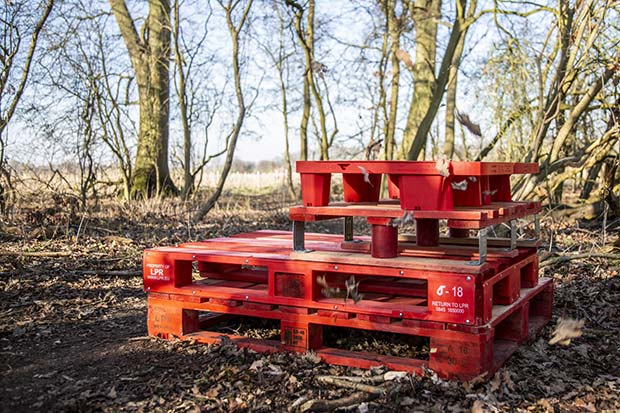Diane Carroll, Commercial Director, LPR UK & Ireland, explains how to deliver a successful pallet handling solution.
 Search online for ‘the future of the supply chain’ and you’ll see a plethora of results, reporting an unprecedented rate of change and forecasting a future that looks radically different to the world we know today. In many respects, that future is already here, with the uptake of robotics systems, driverless forklifts, intelligent handling equipment and the ability to gather, and analyse growing volumes of data across the supply chain.
Search online for ‘the future of the supply chain’ and you’ll see a plethora of results, reporting an unprecedented rate of change and forecasting a future that looks radically different to the world we know today. In many respects, that future is already here, with the uptake of robotics systems, driverless forklifts, intelligent handling equipment and the ability to gather, and analyse growing volumes of data across the supply chain.
For many companies, however, that autonomous, highly-automated and labour-free future, with harmonious integration of every aspect of the supply chain, is still years away. Instead, the reality is the need to maintain profitable day-to-day logistics operations – a demand that is ever more stark when set against Brexit-induced supply chain disruption and depressed global economic conditions.
Automation clearly has a role to play across the supply chain, as a means of reducing costs, improving efficiency and improving time to market. With almost all goods being moved on pallets, it’s no surprise that there is growth in the use of automated pallet handling systems, such as pallet sorting and repair units, autonomous forklifts and stackers.
The challenge is that automated pallet handling systems often cause more problems than they solve. Handling systems are generally engineered to tight tolerances in the expectation that pallets will be constructed to similar standards. The reality is that many wooden pallets are produced to wide tolerances, often outside those of the handling system, or use inferior materials, such as composite blocks; these can swell when wet or twist due to impact. Pallets can also become damaged in use, leading to frequent line stoppages with jammed, misaligned or rejected pallets.
The solution depends on a number of factors.
Firstly, work closely with your pallet pooling provider when designing pallet handling systems. This is easier if you are developing a new line or handling unit. However, even with an existing system, if you are having problems then it’s important to talk to someone with experience of configuring and using handling equipment; simple modifications can sometimes make a significant difference.
At LPR, we have a dedicated team of quality service managers, specialising in pallet handling technology. We collaborate with customers, developing solutions that meet exact requirements. These might use standard machinery, or require customisation. In each case, we start with the businesses objectives and challenges and then help customers engineer suitable systems, with the flexibility to meet future requirements.
Secondly, ensure that your pallet pooling supplier delivers pallets that are constructed to an agreed standard, and that every pallet conforms to this standard. This may sound obvious, but many pallets in circulation are of poor quality; even those from established providers can be variable in terms of dimensions and the timber used. By comparison, LPR uses only solid timber from sustainable sources with PEFC accreditation. Pallets are manufactured to a consistent and high quality, regularly inspected and, if required, repaired at one of our specialised depots across the UK.
Thirdly, damage to pallets can be caused by poorly trained warehouse or forklift operatives, who may view pallets as consumable, or disposable items. The reality is that for the customer and pallet pooling supplier a pallet is an asset with an inherent value. Retraining warehouse teams to improve the handling of pallets and minimise the risk of damage will help to eliminate problems in automation systems and reduce operating costs.
The future supply chain for many businesses will be based on high levels of automation, with extensive use of real-time data and artificial intelligence. Meanwhile, developing automated, reliable and low-cost pallet handling systems can provide an opportunity to improve productivity, customer service and profitability.
For further information visit www.lpr.eu.




Comments are closed.